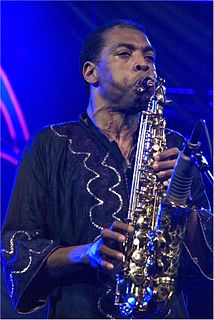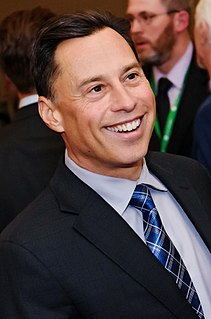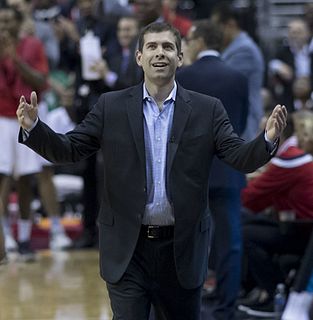A Quote by Donovan Bailey
Our people historically have gone through a lot. That is our story. You can trace it all the way back to slavery. But it is incumbent upon everyone, no matter what field, to make it easier on the next generation.
Related Quotes
The thing we need to work on as a country is our educational system. To me, that is something that our generation needs to be focused on. To make sure that for our next generation, every child - no matter what background, no matter what ethnicity, no matter whether they're whatever gender - that they are all educated to have real equal opportunity. That's number one for me. But I have no question that if it's not our generation that will make sure that that happens that it will be our children's generation.
If we wish to know about a man, we ask 'what is his story--his real, inmost story?'--for each of us is a biography, a story. Each of us is a singular narrative, which is constructed, continually, unconsciously, by, through, and in us--through our perceptions, our feelings, our thoughts, our actions; and, not least, our discourse, our spoken narrations. Biologically, physiologically, we are not so different from each other; historically, as narratives--we are each of us unique.
In building a path through the self to the far shore of awareness, we have to carefully pick our way through our own wilderness. If we can put our minds into a place of surrender, we will have an easier time feeling the contours of the land. We do not have to break our way through as much as we have to find our way around the major obstacles. We do not have to cure every neurosis, we just have to learn how not to be caught by them.
It used to be, if you were a reporter, you wrote a story and then you moved on to the next one. We were used to people coming to the New York Times. We waited for them to turn on our website or to pick up our print paper and see what we have. We now understand that we have to make our stories available to our readers. A lot of people get their news from Facebook or Twitter and we want to make sure that they see some of our best stories there, too. We do this more aggressively now than we did before.
Before slavery, Africa had a culture. We had medicine and our cure for malaria. Slavery brought diseases that we were not used to; slavery brought industry and people were criticizing industry way back as 2,000 years ago, that it was going to pollute the air, sea. Industry is not the way. We must deal with nature.
If we don't understand how metaphor works we will misunderstand most of what we read in the Bible. No matter how carefully we parse our Hebrew and Greek sentences, no matter how precisely we use our dictionaries and trace our etymologies, no matter how exactly we define the words on the page, if we do not appreciate the way a metaphor works we will never comprehend the meaning of the text.
There is a clear connection between developing the skills and talents of young people, and our economic success as a province. Initiatives like the Make Your Pitch competition and the Ontario Social Impact Voucher help us nurture the next generation of business leaders. We will continue creating an inviting environment for our next generation of entrepreneurs, ensuring they develop the right skills needed to succeed in a globally competitive economy and build the future of Ontario.
With a novel, you have to have a story. It's much more important to have it matter to the reader what happens to people, and it has to make sense and end in a way that is satisfying. So I spend a lot more time thinking about that. Then the writing itself usually is easier for me, because I know where it's going.
The incredible story of progress that is America has always been built by those who ask why, what if, and why not. Our schools must begin instilling that wonder in our children again so that their generation will unite around the next great project of our time, whether it be declaring America energy independent or launching the next great technological revolution.
Children are truly the future of this country - our next teachers, they're our next doctors, they're our next police officers, and they're our next Members of Congress. It's our responsibility to do everything that we can to protect them and make sure that children are able to live, learn, and grow up in safe environments.
None of our films look alike, we are very dialectical in our approach to each one, and 'Hoop Dreams' was no exception. That's what I love about documentary filmmaking, we never know where the story is going, we don't know what is going to happen next, and we're inside a culture of people that you have to figure out in many ways. It's a relationship between what you thought might have been the story, and what happens in the 'field.' Out of that comes the story, which was exactly what happened with 'Hoop Dreams.'






































